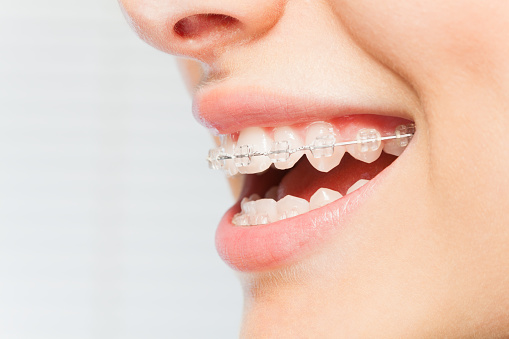
Many people are familiar with some the bad side-effects related to not caring for your teeth properly while wearing braces, but many people don’t know the dangers of having bruxism with braces.
Bruxism and braces simply don’t mix! Grinding teeth while having braces not only causes problems for oral health, but it also causes problems for the braces themselves.
Bruxism is the medical term for the continual grinding of teeth during the day or at night. The most common side-effects of bruxism include a sore jaw, sore teeth, and gum aches. When bruxism goes untreated, it can cause a disorder known as TMD.
TMD is a disorder affecting the jaw muscle that attaches the mandible, or lower jaw, to the skull. Continual teeth grinding causes excess stress on this muscle and can cause permanent damage as well as severe pain if teeth grinding is not fixed.
BRACES ARE A LOT MORE FRAGILE THAN YOU MIGHT THINK
While braces are made of strong alloy materials, they can actually be quite delicate. The pressure of grinding your teeth is enough to break braces if done enough. This could mean wires between braces coming undone or even the adhesive that holds the braces to the teeth deteriorating. Before getting braces, it’s important to check whether bruxism is a concern or not.
The most common sign of bruxism is a sore and aching jaw. Of course, you’ll be able to catch yourself grinding during the day, but at night it may be a little more difficult. The best time to check for nighttime teeth grinding is in the morning. A sore jaw in the morning indicates that you’ve been grinding all night long. Luckily, we have solutions to help you.
If you think you suffer from bruxism, come into our office for a visit. We’ll be able to tell you whether you’ve been grinding your teeth and may even be able to offer you a mouth guard to protect you at night. Our custom mouth guards can even be worn over braces!


